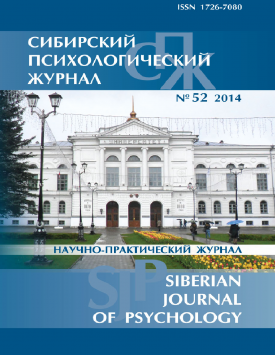Important psycho-social characteristics of patients with chronic pulmonary tuberculosis for the therapeutic process
The aim of this study was to examine the psycho-social characteristics of patients with chronic fibro-cavernous pulmonary tuberculosis between men and women that are meaningful to the treatment process. Object and methods. A Group of patients receiving inpatient treatment was examined in GOOSE MMU "Samara City Tuberculosis Hospital" № 5. The group consisted of 253 people, 152 men (age 45,7 + 3,8 years) and 101 women (age 44,0 + 3,9 years). For the study of personality characteristics multivariate standardized method for studying personality (SMIL) was used. For the analysis of social characteristics a special questionnaire "Social characteristics of patients with pulmonary tuberculosis" was developed. To study the response to treatment one more questionnaire was developed. Results. Most patients with chronic pulmonary tuberculosis are alcohol abuse, any social contacts with them are broken, they feel like outcasts in society, and they have experienced "the stigma of tuberculosis". They consider their illness to be social suffering and want to take revenge on other members of society for it. Patients with chronic fibro-cavernous pulmonary tuberculosis do not believe in the possibility of cure, and are tired of the long-term treatment, hospital stay oppresses them. The men with chronic pulmonary tuberculosis are characterized with a desire to avoid failure, the tendency to be "back on the wagon" periodically, they are impulsive in their behavior or rude verbally. When in stress their activity is blocked and they subject to a stronger leading personality. Their defense activities are rejection of self-fulfillment and losing of consciousness control. The women with fibro-cavernous pulmonary tuberculosis are characterized with passive personal position, pessimistic prospects, inertia in decision-making, personality maladjustment. In a decompensation state they are aggressive and accumulate affect. Discussion of results. Results of the study allowed to find the ways to motivate patients with chronic pulmonary tuberculosis for further treatment. Sick people need moral and material support and care from their loved ones and friends. People closed to them will assist only on condition that they will believe in their own security. This becomes possible in case of abacillation (bacteriological) of patients. Doctor is advisable to start contractual relationships. There is a great need for encouraging any collaboration with a physician in the therapeutic process. Correction of behavior is possible with the help of an authoritative leader or opinion of the reference group. Motivation for further treatment of men sick chronically might become their ability to physically stand up for themselves and also their physical weakness growing because of inadequate treatment.
Keywords
фиброзно-кавернозный туберкулез легких, социальные характеристики больных хроническим туберкулезом легких, отношение к лечению больных фиброзно-кавернозным туберкулезом легких, психологические характеристики больных фиброзно-кавернозным туберкулезом легких, психосоциальные характеристики больных, Fibrous-cavernous pulmonary tuberculosis, social characteristics of patients with chronic pulmonary tuberculosis, psychological characteristics of patients with fibro-cavernous pulmonary tuberculosis, psycho-social characteristics of the patientsAuthors
| Name | Organization | |
| Sukhova Elena V. | Samara State Economic University | sukhova12@yandex.ru |
References

Important psycho-social characteristics of patients with chronic pulmonary tuberculosis for the therapeutic process | Sibirskiy Psikhologicheskiy Zhurnal – Siberian Journal of Psychology. 2014. № 52.
